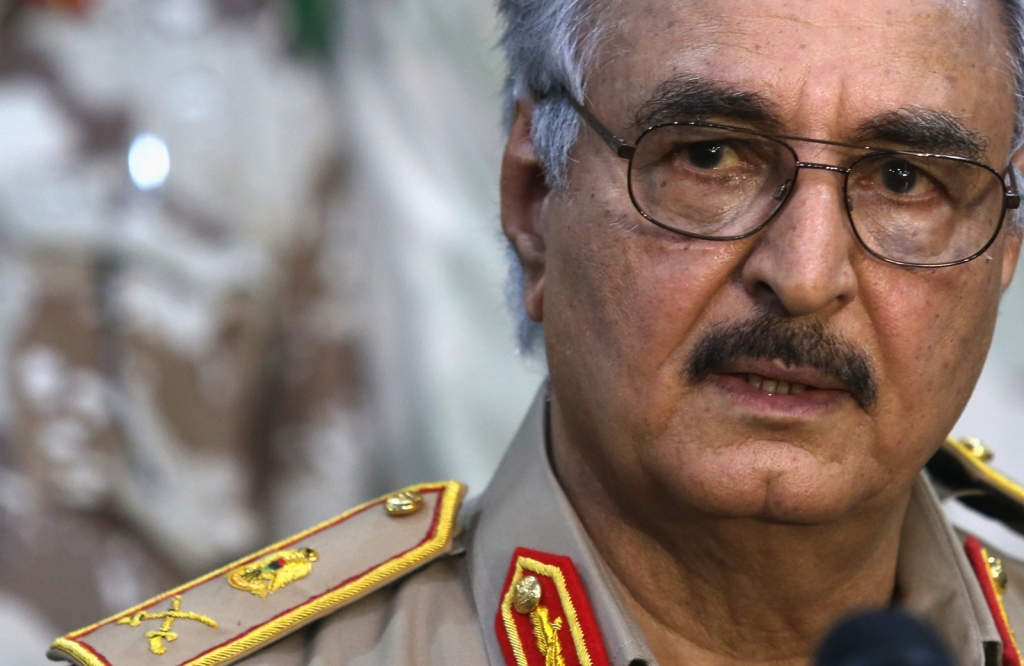-
Tips for becoming a good boxer - November 6, 2020
-
7 expert tips for making your hens night a memorable one - November 6, 2020
-
5 reasons to host your Christmas party on a cruise boat - November 6, 2020
-
What to do when you’re charged with a crime - November 6, 2020
-
Should you get one or multiple dogs? Here’s all you need to know - November 3, 2020
-
A Guide: How to Build Your Very Own Magic Mirror - February 14, 2019
-
Our Top Inspirational Baseball Stars - November 24, 2018
-
Five Tech Tools That Will Help You Turn Your Blog into a Business - November 24, 2018
-
How to Indulge on Vacation without Expanding Your Waist - November 9, 2018
-
5 Strategies for Businesses to Appeal to Today’s Increasingly Mobile-Crazed Customers - November 9, 2018
Libyan general seizes key oil terminals from militia
It comes as Libyan fighters in the west, backed by USA airstrikes, have made strides in wresting away the strategic city of Sirte from Islamic State militants, giving hope that Libya is beginning to emerge from five years of political and armed struggles that erupted after longtime dictator Moammar Gadhafi was deposed and killed in 2011.
Advertisement
Haftar, a former army general who has been a divisive figure in Libya since Gaddafi was toppled, has resisted attempts to integrate him into a unified armed forces and overcome divisions between the east and west regions.
The two ports are capable of processing some 700,000 barrels of oil per day and the soil surrounding them is rich in oil.
If confirmed, the seizure of the ports would deal a major blow to the Tripoli-based Government of National Accord (GNA), which had hoped to rely on oil exports for its revenues.
Cautioning against the attacks, the United Nations envoy Martin Kobler said the United Nations resolution 2259 “clearly prohibits illegal oil exports” from Libya and stated that the country’s oil installations must be under the authority of the Government of National Accord (GNA). Prime Minister Fayez al-Sarraj’s GNA has been attempting to increase output – now less than a quarter of pre-war levels – to revive the economy and boost efforts to unite the country after a United Nations-brokered peace deal in December. As a result of the agreement, the GNA arrived in Tripoli in March, backed by Western powers, to stabilise a country where lawlessness allowed Islamist militants and migrant smugglers to operate across swathes of territory.
Control by Haftar’s brigades will also raise questions for the market about the legality of crude exports by a force opposed to the internationally recognised government in Tripoli. Control of the port was established earlier today, media reported, citing LNA sources.
Military strongman General Khalifa Haftar on Sunday launched an offensive on Libya’s “oil crescent” along the northern coast.
The forces were later reported to have also taken the port of Al-Brega, as well as 80 percent of the Zuwaytina oil site.
One witness said there had been a heavy deployment of LNA armored vehicles around Ras Lanuf and Es Sider.
But Michael Nayebi-Oskoui, a senior analyst at the Statfor intelligence group, said he didn’t think a direct confrontation between Haftar’s fighters and pro-GNA forces was probable.
Sanalla had spoken out against that deal, accusing PFG commander Ibrahim Jathran of overclaiming for the back payment of salaries and signaling that he might withdraw support from the GNA.
The US Africa Command, meanwhile, said American warplanes carried out four air strikes in Sirte on Sunday in support of GNA forces, targeting IS “fighting positions”.
Eastern factions previously tried unsuccessfully to export oil independently through a breakaway branch of the NOC in Benghazi.
Claudia Gazzini, a Libya expert at International Crisis Group, said it was in Haftar’s interests to have a working relationship with the NOC.
“I don’t think the GNA is looking to get into a fight it likely won’t win”, he said.
In the wake of the vote, Prime Minister Fayez Seraj, who heads the nine-member Presidency Council that acts as Libya’s head of state, said he would form a new cabinet and present it to the House of Representatives for approval.
The return to the Council of Ali Gatrani, a member representing the east who had suspended his membership for months, opens a potential channel to Haftar and his allies in the east as the government seeks to win their backing.
Advertisement
“Many of them (militiamen) abandoned their weapons to escape or turned themselves in”, said Brig.





























